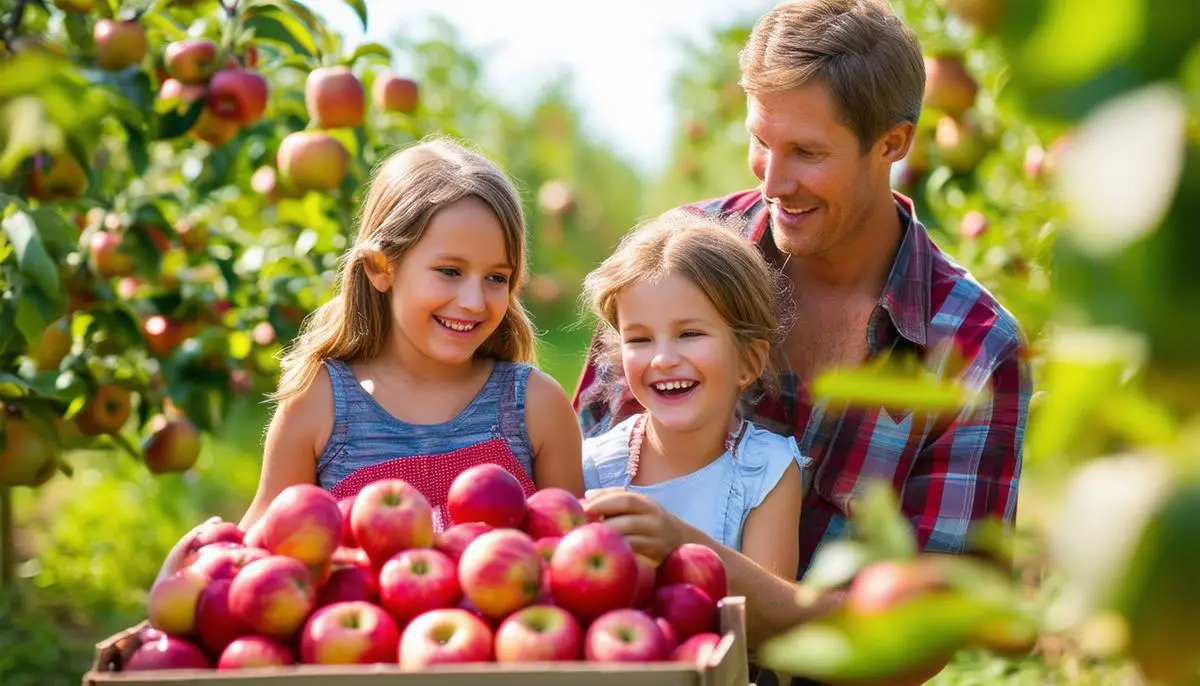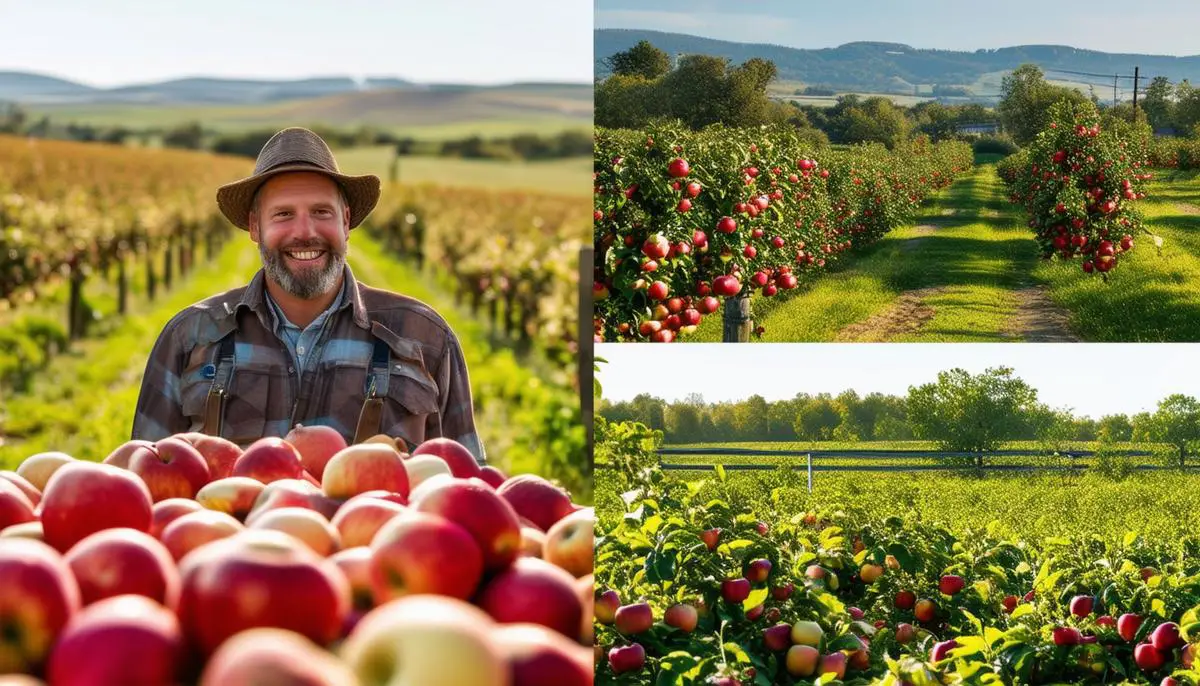Economic Contributions of Apple Festivals
Apple festivals are more than just a chance to munch on crisp Honeycrisps or admire Crimson Crisps. They're economic powerhouses that rev up local economies faster than you can say "apple pie."
Ticket sales and vendor fees are the first slices of this economic pie. Every ticket bought and stall set up pumps cash into local coffers and the festival kitty. But that's just the appetizer.
Visitors don't just come for the apples; they bring their wallets too. Hotels book up, restaurants overflow, and souvenir shops sell out quicker than hot cider on a cold day. Even taxi drivers and bike rental services get a piece of the action.
The numbers are eye-popping:
- In Virginia alone, farm festival visitors spent a whopping $1.5 billion in 20151.
- Over in New York, apple-related industries add more than $2 billion in output and nearly 12,000 jobs2.
That's not small potatoes – or should we say, small apples?
These festivals aren't just a flash in the pan, either. They boost farm popularity and sales year-round, turning small towns into bustling hubs of apple-fueled commerce. It's not just about Galas or Fujis; it's about cold, hard cash and community spirit.
Agritourism and Apples
Picture this: families bundled in flannels, baskets brimming with handpicked apples. It's not just Instagram gold; it's an economic lifeline for apple farmers.
U-pick Operations: The Core of Agritourism
U-pick operations are the stars of the show. Visitors pay to play farmer for a day, filling their bags and farmers' bank accounts. But that's just the core of the apple.
Farm tours add another layer of flavor. Curious city slickers get a behind-the-scenes look at apple magic, from blossom to basket. It's education with a side of extra revenue.
Then there are the apple-themed events that draw crowds like bees to blossoms. Take Fishkill Farms in New York – their Fall Harvest Festival is the stuff of apple dreams, packed with more activities than you can shake a branch at.
"Apple Hill in California sees over half a million visitors annually. That's more foot traffic than most shopping malls, folks!"
Smart farmers are diversifying faster than you can say "apple cider donut." They're offering:
- Farm-to-table experiences
- Fresh-pressed cider
- Baked goods to make your grandma jealous
Schools are getting in on the action too, swapping textbooks for orchard trips. It's education that's actually fun – imagine that!
The bottom line? Agritourism turns apple farms into community hubs buzzing with activity and commerce. It's creating a ripple effect that's sweeter than the first bite of a fresh-picked Gala.

Challenges and Success Factors in Agritourism
Jumping into agritourism isn't all apple pie and hayrides. Farmers face a bushel of challenges that could make even the hardiest apple tree wilt.
Key Challenges:
- Regulations: Each state has its own maze of rules on zoning, health, and safety. It's enough paperwork to make a farmer trade their tractor for a desk job.
- Insurance: Inviting the public onto a working farm is like juggling chainsaws – exciting but risky. You need coverage for everything from apple peel slips to spooked horse scares.
- Infrastructure: Many farms are charmingly rustic, but charm doesn't cut it when city folks' SUVs are stuck in the mud. And in this digital age, even orchards need Wi-Fi stronger than hard cider.
But don't lose hope, apple lovers! Success is as sweet as it is possible. Take a leaf out of Fishkill Farms' book. They've cracked the agritourism code with high-speed Wi-Fi and savvy marketing.
Success Factors:
- Local government support: Updated zoning laws and agritourism grants can turn a struggling orchard into a thriving destination.
- Collaboration: Farmers teaming up on events and marketing efforts can create a feast of experiences that keeps visitors coming back for seconds.
- Community involvement: Promoting your farm as a local hub through festivals and school visits turns your property into a hive of activity buzzier than a beehive in apple blossom season.
So, sharpen those plows, untangle that red tape, and get ready to harvest the sweet rewards of agritourism. It's not just about apples – it's about creating a core-munity!

In essence, apple festivals and agritourism are more than just seasonal fun – they're economic powerhouses that bring communities together and create lasting memories. So the next time you bite into a crisp apple or snap a selfie in an orchard, remember you're part of something bigger than just a day out. You're contributing to a whole apple economy!
- Virginia Tourism Corporation. Economic Impact of Domestic Travel on Virginia Counties. 2015.
- New York Apple Association. Economic Impact of the Apple Industry in New York State. 2017.